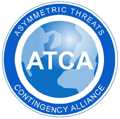
Avian Influenza: Business Continuity - The Human factor
London, UK - 18 November 2007, 08:56 GMT
Dear ATCA Colleagues
[Please note that the views presented by individual contributors
are not necessarily representative of the views of ATCA, which is neutral.
ATCA conducts collective Socratic dialogue on global opportunities and threats.]
We are grateful to:
. Dr Royston Flude from Fribourg, Switzerland, and Dr Pete Moore from Bristol,
UK, for their submission to ATCA, "Avian Influenza: Business Continuity
- The Human factor."
Dear DK and Colleagues
Re: Avian Influenza - Business Continuity - The Human factor
Bird Flu is back in the headlines. The recent outbreak in the UK was noted
on 12 November 2007 as the H5N1 virus killed some birds on a free range poultry
farm in Suffolk. Its 5,000 turkeys, 1000 ducks and 500 geese were immediately
slaughtered, and then birds on four premises serviced by some of the same
staff were slaughtered two days later. Authorities have set up a 3km protection
zone, a 10km surveillance zone and Restricted zone that covers most of Norfolk
and Suffolk.
[CONTINUES]
[ATCA Membership]
A Community Services Corps also would provide a highly effective method for
tackling many of the general problems of social malaise that we now see in
our inner cities.
With warm regards
Royston Flude and Pete Moore
Eur Ing Dr Royston Flude received his first degree in Physics from the University
of Manchester and has more than 25 years experience in a broad range of technologies
and social economics with particular expertise at identifying commercially
viable IPs. He has held senior positions with Shell Chemicals, Reed International,
Lafarge Coppeé, Philips, and Manpower, among others. He has directed
projects in Germany, the Netherlands, France, and the USA, as well as the
UK. He has also been a Visiting Fellow at Manchester Business School. More
recently, he has contributed to a new approach to Corporate Governance &
Social Responsibility and sits on the Steering group of the UNECE, Geneva
and is actively involved in the activities of the United Nations. Residing
now in Switzerland, he has extensive contact networks within the international
financial sector and has developed senior level links with governments in
the USA, the European Union and the Pacific Rim including the computer hardware
sectors of China and Taiwan. He is a specialist in understanding the dynamics
of purchasing through multi-media, including the Internet, and in the development
of specialized customer service interventions that prompt repeat purchases.
He is also a researcher focused on the development of nanotechnology solutions
for major world challenges.
Dr Pete Moore is author of more than a dozen books that reflect on the way
that science and technology has had an impact on humanity, including books
that look specifically at the historic impact of diseases on society. Over
the last 15 years he has contributed to national and international publications,
including 'Nature' and the 'Journal of Biology'. He is developing a line in
public speaking and has appeared on radio and television and has won 6 national
awards for his work. Pete is a fellow of the Royal Society of Arts and has
worked as a rapporteur at private meetings in the House of Lords, and at St
George's House, Windsor Castle. He is a visiting lecturer in ethics at Trinity
College Bristol, and a Course Tutor on the Science Communication MSc course
at the University of the West of England, Bristol. He was Chairman of the
Medical Journalists' Association from 2002-2005.
[ENDS]
We look forward to your further thoughts, observations and views. Thank
you.
Best wishes
For and on behalf of DK Matai, Chairman, Asymmetric Threats Contingency
Alliance (ATCA)
ATCA: The Asymmetric Threats Contingency
Alliance is a philanthropic expert initiative founded in 2001
to resolve complex global challenges through collective Socratic
dialogue and joint executive action to build a wisdom based global
economy. Adhering to the doctrine of non-violence, ATCA addresses
asymmetric threats and social opportunities arising from climate
chaos and the environment; radical poverty and microfinance; geo-politics
and energy; organised crime & extremism; advanced technologies
-- bio, info, nano, robo & AI; demographic skews and resource
shortages; pandemics; financial systems and systemic risk; as
well as transhumanism and ethics. Present membership of ATCA is
by invitation only and has over 5,000 distinguished members from
over 120 countries: including 1,000 Parliamentarians; 1,500 Chairmen
and CEOs of corporations; 1,000 Heads of NGOs; 750 Directors at
Academic Centres of Excellence; 500 Inventors and Original thinkers;
as well as 250 Editors-in-Chief of major media.
The views presented by individual contributors are not necessarily
representative of the views of ATCA, which is neutral. Please
do not forward or use the material circulated without permission
and full attribution.
Intelligence Unit | mi2g | tel +44 (0) 20 7712 1782 fax +44
(0) 20 7712 1501 | internet www.mi2g.net
mi2g: Winner of the Queen's Award for Enterprise in the category
of Innovation
|

